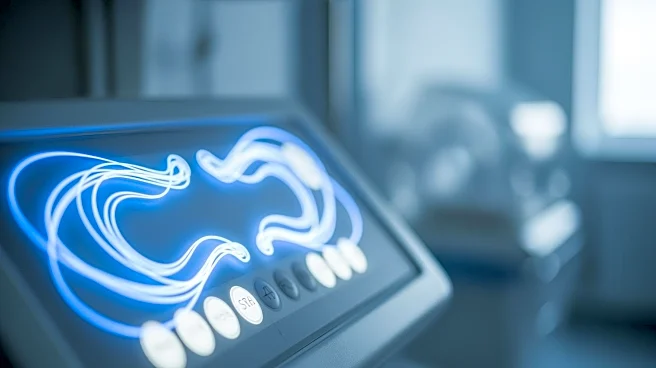What's Happening?
A recent observational study has examined the use of nasal intermittent positive pressure ventilation (NIPPV) in neonates with Grade 3 bronchopulmonary dysplasia (BPD). The study found that a significant portion of infants could be extubated to NIPPV and
discharged without tracheostomy, challenging previous practices. The research highlights the potential of NIPPV to support extubation success in severe BPD cases, offering an alternative to tracheostomy. The study also noted differences in hospital stay lengths between infants managed with NIPPV and those who received tracheostomies.
Why It's Important?
This study is significant as it provides new insights into respiratory support strategies for neonates with severe BPD, a condition that poses substantial challenges in neonatal care. The findings suggest that NIPPV could reduce the need for tracheostomies, potentially improving patient outcomes and reducing hospital stays. This could lead to changes in clinical practices and guidelines, impacting how neonatologists approach the management of severe BPD. The study also emphasizes the need for further research to optimize NIPPV strategies and understand long-term outcomes.















